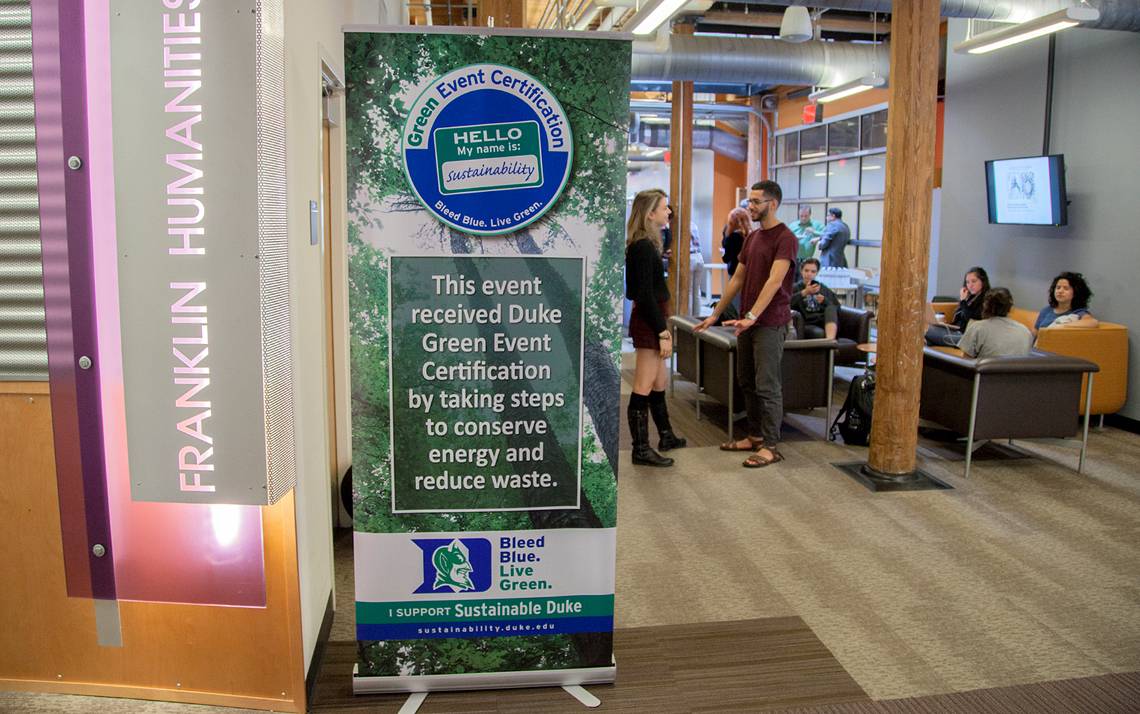Take the Pledge
After 10 years, nearly 10,000 sign Duke’s Sustainability Pledge

With a background in humanities and the environment, Amanda Starling Gould didn’t need much convincing to sign the Duke Sustainability Pledge in 2016.
Since signing, Gould has taught and worked greener, coordinating conferences that earned Duke Green Event certifications, teaching Duke Green Certified courses and becoming more mindful about office paper use.
“The pledge itself is not a life-changing act, but it is a promise,” said Gould, a digital humanities specialist and project coordinator at the Franklin Humanities Institute. “It’s like a nagging reminder to do better daily.”
The Duke Sustainability pledge came online in 2008, giving students, staff and faculty a chance to commit to Duke’s push toward becoming carbon neutral by 2024. Nearly 10 years and 10,000 signers later, the Duke community’s contribution is undeniable.
“The pledge is a way for us to inspire people to think about what they could do to help meet Duke’s larger climate goals,” said Tavey Capps, director of Sustainable Duke and one of the pledge’s authors.
“We were trying to make it more personal, more tangible.”
There are no specific green behaviors mentioned in the pledge’s three sentences. Instead, signers are asked to “consider the environmental, social and economic impact” of decisions and “make every effort” to reduce their footprint.
The past decade has seen Duke continue its sustainability advances. Due in large part to switching from coal to natural gas, greenhouse gas emissions from Duke’s steam plants dropped 40 percent since 2007. And there are now 41 LEED-certified green buildings on campus, covering 4.5 million gross square feet.
A year after the pledge launched, the Duke Carbon Offsets Initiative was established becoming the country’s first university-sponsored carbon offsets program. Soon after, the Duke Campus Farm was created as a living laboratory.
Sustainability-oriented staff has grown in departments across Duke, as positions were created focusing on making responsible choices in areas such as transportation, dining and energy. But the contributions of the thousands who signed the pledge have played a role, too.
Taken individually, Gould’s sustainable choices may not seem like much. But, Capps explained, when thousands make similar efforts, the effects become substantial.
Individual choices contributed to Duke cutting its potable water use per gross square feet by 40 percent since 2006 and its total greenhouse gas emissions by 23 percent since 2007.
On average, a person at Duke creates 13 percent less landfill material now than in 2012.
“Any small gesture that shows your commitment and dedication to environmental issues can be a significant step toward greening our campus,”
Gould said.